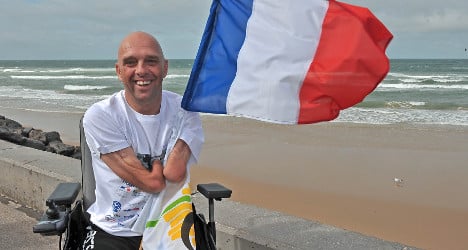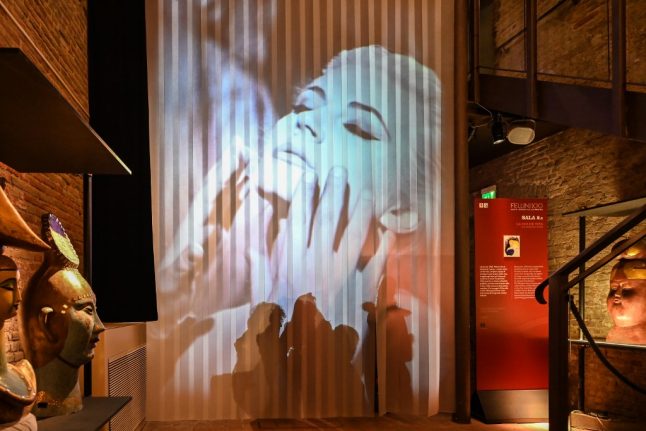Limbless French adventurer Philippe Croizon, known for his feats of swimming and diving, said on Monday his custom-designed wheelchair has been found after he reported it stolen while he was on holiday in northern France.
Croizon, famed as the first quadruple amputee to swim across the English Channel, said the driver of a bus for handicapped people found the wheelchair in a parking lot on Friday and took it for safekeeping not knowing who the owner was.
"He only called me on Monday evening to tell me about it, after watching a report on this case" on French television, Croizon told AFP.
"Thursday morning I'll be at the police station in Dieppe to get my wheelchair back," an elated Croizon, 45, told BFM television.
"It's a big, big relief … All's well that end's well."
Later on he posted a message on Twitter: "A special thought to all my disabled friends who are struggling today without a wheelchair. Let's not forget them."
The athlete had reported the theft of the wheelchair and its trailer, which he discovered missing on Friday morning while staying with friends near Dieppe.
"I feel sad and angry," he told AFP earlier. "Let them keep the trailer if they want, but at least give back the wheelchair."
Croizon, 45, said the high-tech, all-terrain wheelchair was brand-new and had been designed specially for him.
“It’s not just my electric wheelchair they’ve nicked,” Croizon told French daily Le Parisien on Sunday.
“They also stole my independence, and without that I’m nothing,” he added.
SEE ALSO: Thieves 'stole from victims of train crash'
On Monday, he lamented on Twitter and in the French media, that it had taken him a year to procure the special all-terrain wheelchair, and that friends of his had helped him pay €24,000 for it.
Furthermore, Croizon took the opportunity to point out that France’s social security system reimbursed him just €3,000 for the crucial equipment, despite the fact that “on average, an electric wheelchair costs about €10,000.”
Croizon began his extraordinary endurance swimming career just two years before his Channel swim, and in January becoming the first quadruple amputee to complete a 33-metre (100-foot) dive.
Between April and August 2012, Croizon once again made history when, along with long-distance swimmer Arnaud Chassery, he swam four straits between five continents.
The two completed the astonishing set of swims by crossing the Bering Strait between the US state of Alaska, and Russia.
The Frenchman braved strong currents and near-freezing temperatures in a roughly four kilometre swim between the US island of Little Diomede and Big Diomede in Russia that he said took about one hour and 20 minutes.
"This was the hardest swim of my life, with a water temperature of four degrees Celsius and strong currents," the deeply moved Croizon told AFP after reaching the Russian island.
"We made it," Croizon told AFP.
“Everything is possible, everything can be done when you have the will to go beyond yourself. We're all equal, disabled and non-disabled people on all continents," he concluded.
SEE ALSO: Thieves abduct widow, aged 85, from Paris street
Croizon had been a steel worker by trade, until he was electrocuted in March 1994 while working at his house in Saint Remy-sur-Creuse in central France.
He was forced to have both arms and legs amputated in the aftermath of the horrific accident.
The following is footage of Croizon completely his extraordinary cross-Channel swim in September 2010, from MSNBC.





 Please whitelist us to continue reading.
Please whitelist us to continue reading.
Member comments